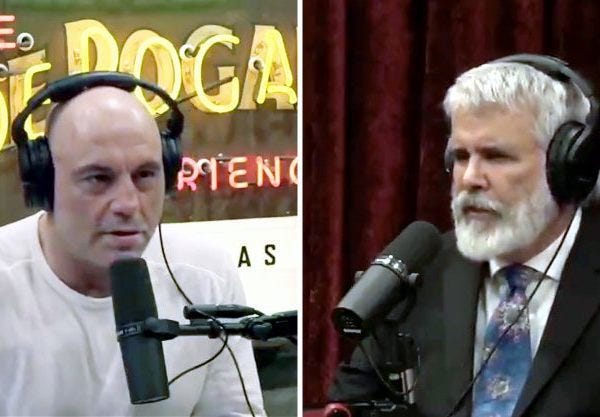
This past month, hundreds of scientists, doctors and other medical experts penned an open letter to the music streaming service Spotify, calling on the platform to take a stand against COVID-19 misinformation released through its platform. The writers stated that “by allowing the propagation of false and societally harmful assertions, Spotify is enabling its hosted media to damage public trust in scientific research and sow doubt in the credibility of data-driven guidance offered by medical professionals.”
The letter focused on Joe Rogan, host of
The Joe Rogan Experience
, a podcast where that regularly features guests with often-controversial opinions.
The Joe Rogan Experience
is Spotify’s most popular podcast, gaining over 11 million listeners per episode. The episode that started this uproar, uploaded on Dec. 31, featured the virologist Dr. Robert Malone, who promoted numerous inaccuracies about COVID-19 vaccines on air.
On Jan. 24, musician Neil Young announced his plans to remove his music from Spotify in protest, justifying his decision with the claim that “Spotify is spreading fake information about vaccines — potentially causing death to those who believe the disinformation being spread by them.”
After Young pulled his music, other artists followed suit, including Joni Mitchell and Nils Lofgren. Even after this, Daniel Ek, chief executive of Spotify, has indicated that he has no plans to remove Rogan’s podcast in the foreseeable future, stating that “it is important to [Spotify] that we don’t take on the position of being [a] content censor.”
This critique of Spotify’s lack of censorship has been leveled at companies before, most prominently against Facebook. Last year, the most viewed Facebook link was a news headline originally published in the South Florida Sun Sentinel, claiming that “a ‘healthy’ doctor died two weeks after getting a COVID-19 vaccine; CDC is investigating why.” Nearly 54 million users in the United States viewed this article. Months later, the article was followed up with a report stating that the original claims did not have enough evidence and were false, an announcement which received significantly fewer views. Following this controversy, President Joe Biden voiced his concern for social platforms’ lack of censorship, remarking that these posts are “killing people.”
Biden’s point highlights that without context or a clear understanding regarding the falsity of these ideas, viewers will be inclined to believe them. In spite of how dangerous these kinds of posts can be, it is legal for sites such as Facebook not to fact check them. If the companies choose not to censor themselves, they face no repercussions besides lost business. For example, firms could choose to pull their advertisements from Facebook, just as prominent artists refuse to use their streaming platform Spotify.

To push these companies to censor misinformation, Senators Amy Klobuchar (D-MN) and Ben Ray (D-NM) recently proposed the Health Misinformation Act. This bill would strip platforms of protections that keep them from being held liable for posts involving health misinformation. While currently under review, if made into law, it would be a first step toward censoring harmful misinformation.
Following Young’s statement, Spotify announced that they would be addressing the matter by introducing an advisory label on any podcast that references COVID-19 and providing links towards factual information. In a statement, Ek wrote that Spotify executives “know [they] have a critical role to play in supporting creator expression while balancing it with the safety of [Spotify] users.” It is one thing to provide a platform for polarizing political views, news stories you may not like or a president whose ideals do not line up with yours. Everyone has a right to their opinions and beliefs, and in the United States, our media has a responsibility to provide platforms for all these beliefs.
However, the ideas expressed on the Dec. 31 episode of
The Joe Rogan Experience
are different: they are factually incorrect and harmful. These ideas focused on false claims regarding the harms of the vaccine, during a time of COVID-19, when 90% of deaths could have been prevented had people been vaccinated. Taking a stand to stop vaccine inaccuracies from reaching over 11 million people is not censorship, it is saving lives. Spotify must take stronger actions against misinformation: it is simply inadequate to provide ‘balanced views’ when one such ‘view’ is factually incorrect and potentially fatal.
















